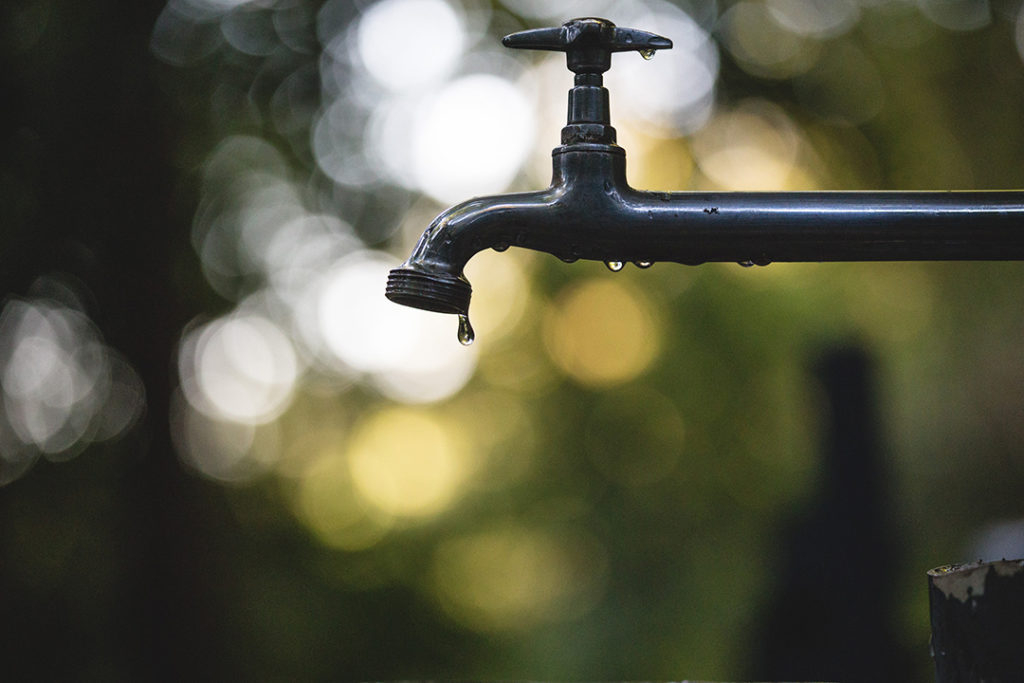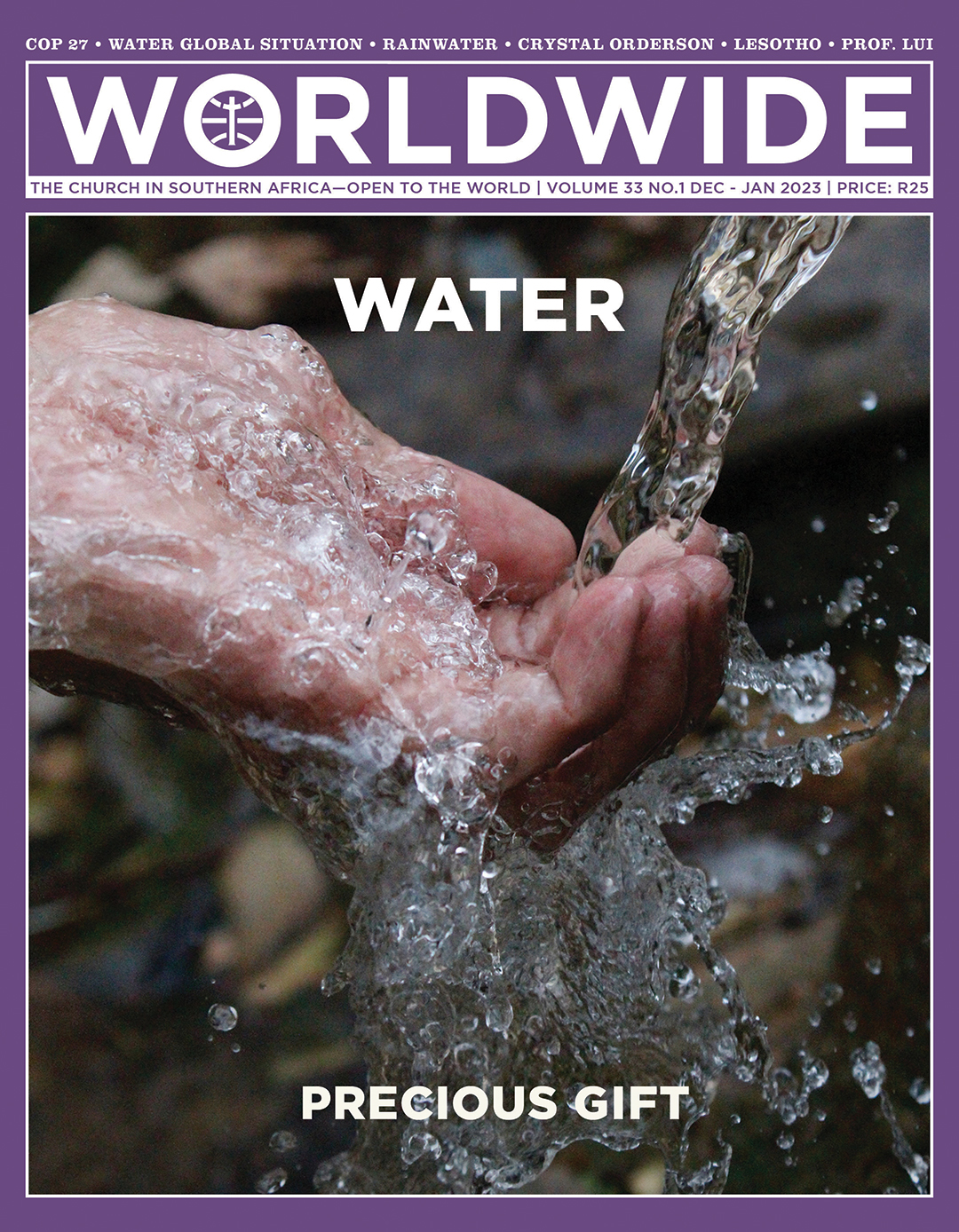INSIGHTS • WATER

Photo by Luis Tosta on Unsplash.
Refreshment and life
BY MIKE POTHIER | Programme Manager, SACBC Parliamentary Liaison Office, Cape Town
AT THE time of writing this article, around half of the land area of Pakistan was either under water or cut off from the rest of the country, as a result of floods. The eastern part of Australia was also heavily flooded, as was much of Nigeria. In all three countries, there was considerable loss of life and huge economic damage. In Pakistan and Nigeria, both heavily dependent on small-scale agriculture, the long-term consequences for food security are going to be severe.
Meanwhile, the western parts of North America are experiencing years of drought. This has created conditions for almost permanent wildfires and, in California especially, it threatens one of America’s, and the world’s food production heartlands. A much worse drought has been affecting the Horn of Africa, with people—especially children—dying in large numbers. In the failed state of Somalia, the situation is especially dire.
These crises highlight just how dependent we are on water. Without it we cannot grow crops or feed livestock; industry grinds to a halt and economies falter; and people have to migrate to more water-secure places, which brings with it all manner of risks—social instability, poverty, disease, overcrowding, and the hardships of life as a refugee. Much the same applies when we have too much water—flooding also destroys crops and animals, factories and homes, schools and institutions; and makes people refugees in their own land.
No wonder, then, that the word ‘water’ appears 47 times in Pope Francis’s encyclical letter on the environment, Laudato Si’. In paragraph 30 he declares that “access to safe drinkable water is a basic and universal human right, since it is essential to human survival and, as such, is a condition for the exercise of other human rights.” When people, particularly poor people, are denied access to clean water, “they are denied the right to a life consistent with their inalienable dignity”. Pope Francis issues a warning: “water continues to be wasted, not only in the developed world but also in developing countries which possess it in abundance.”
The Holy Father probably had in mind the kind of waste that we associate with excessive use—endless watering of large lawns and gardens; washing cars and hosing down driveways; people who take multiple baths or showers every day. These are all certainly worth noting, and people should be encouraged to avoid such excessive consumption, but there is another cause of wastage that is often overlooked, and it is one that we in South Africa need to face up to—infrastructure failure.
Recently, various parts of Johannesburg were without running water for protracted periods, in some suburbs up to nine days—but the Vaal Dam and the city’s distribution reservoirs were full! The explanation given by the authorities was that various major pumping and water treatment stations had been damaged by load-shedding or lack of proper maintenance; many of these installations are old and overdue for upgrading or replacement.
It is also reported that as much as 25% of the water distributed to consumers is lost to leaks and failures in the various pipes and valves before it reaches them; once again, maintenance backlogs are to blame. This is a familiar theme: much of the cause of Eskom’s current inability to produce sufficient electricity to meet the country’s needs is due to failure to maintain and upgrade power stations and transmission networks.
However, there is also some positive news. In 2018, after a few years of poor winter rains, Cape Town famously came close to ‘Day Zero’—the day when the taps run dry. The City Council, organised business and numerous NGOs and community organisations worked together to inform people about responsible water use, and increasingly heavy restrictions were imposed. With some exceptions, Cape Town’s citizens responded positively, despite much grumbling, and did what they could to limit water use. There was a strong sense of social solidarity and a realisation that climate change is likely to make this kind of challenge a regular thing.
In the end, good rains arrived before Day Zero and the crisis was avoided. But important lessons were learnt and many Capetonians will never go back to their previously wasteful ways. As more and more people experience the harm that too little, or too much, water can do, let us hope that all over the world we can rethink our relationship with water. Let us heed Pope Francis’s warning:
“We have forgotten that we ourselves are dust of the earth (cf. Gen 2: 7); our very bodies are made up of her elements, we breathe her air and we receive life and refreshment from her waters.” (Laudato Si 2)

